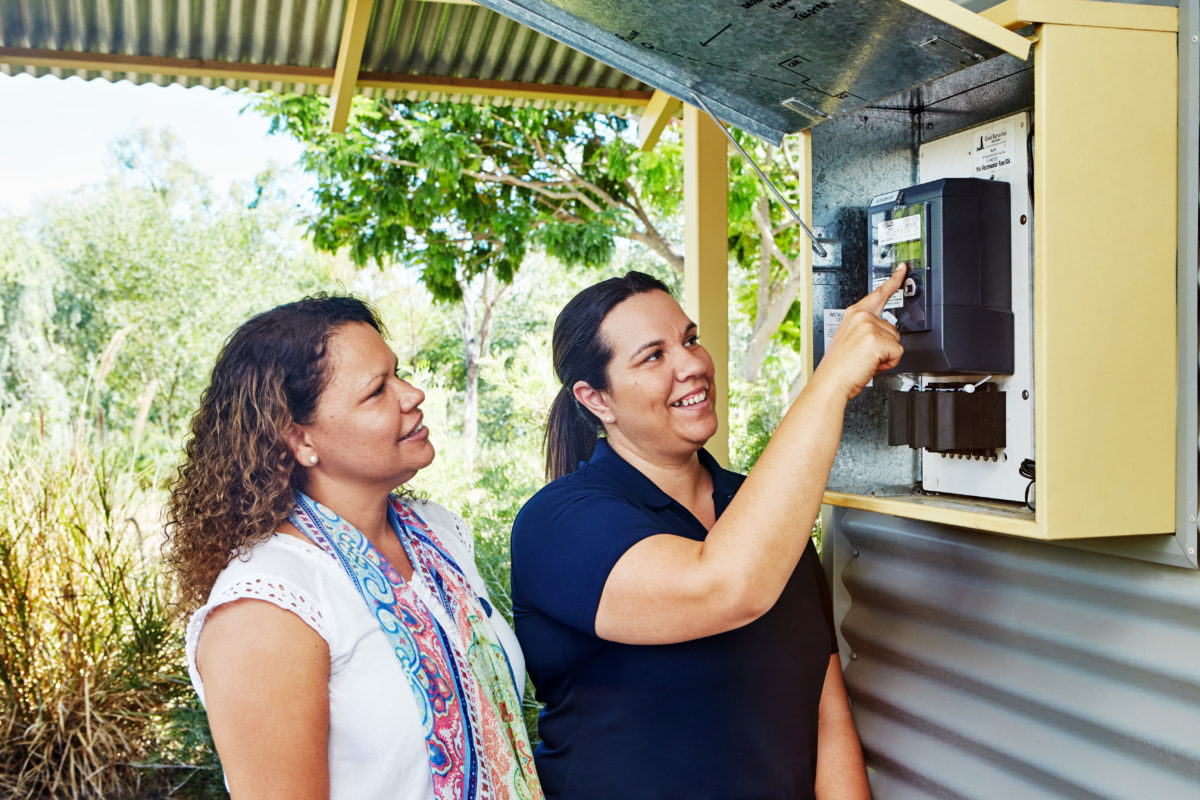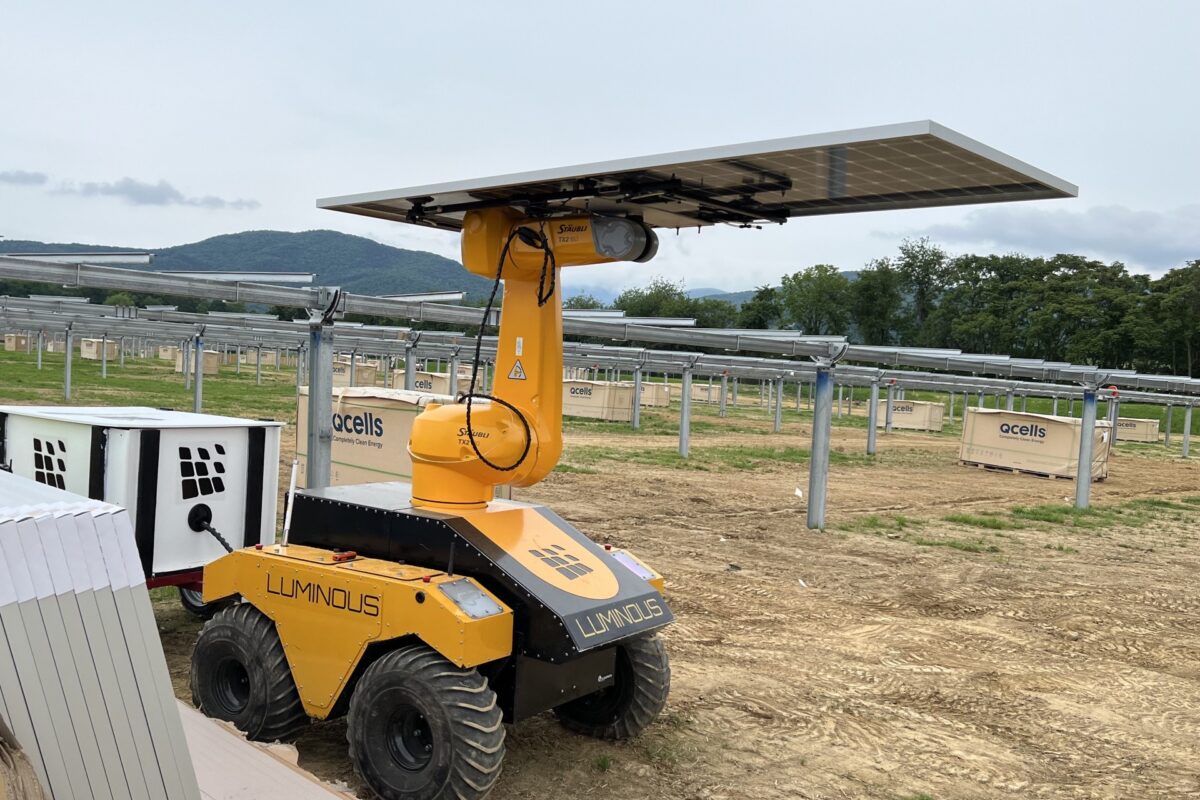From the July edition of pv magazine
Your job title is Reconciliation Manager at Horizon Power. I guess a lot of people outside of Australia wouldn’t know the significance of reconciliation. How would you describe it?
Reconciliation is about building a relationship between Aboriginal and non-Aboriginal Australians. In a corporate context it is largely around helping deliver the “closing the gap” initiatives, as the government has termed it. This means bridging the gap in a whole lot of areas across health outcomes, employment outcomes, life expectancy, education and all of these areas where there currently is a significant gap between Aboriginal Australians and non-Aboriginal Australians.
Why is reconciliation important for a utility in Western Australia?
I think it’s twofold. As Horizon Power is a government entity, we take on a responsibility on behalf of the state government of Western Australia, to a certain extent, to make sure that services are provided for Aboriginal people as they are to non-Aboriginal people.
Beyond that it talks to electricity as an essential service and the role it plays in everyday life. I think there are links to that in terms of the [closing the gap] outcomes that I mentioned. Many people take for granted having power and a secure supply of power to your home. That might be the quality of the power that comes into your house but also that continual supply and affordability – which relates to being able to keep food in your refrigerator, keep your lights on and all the things that come with power.
I see those two things as being quite critical, one being that obligation and the other being the essential enabling factors of power.
How then does that relate to solar PV?
The most obvious benefit is the same that is for anyone. For most people their primary desire to shift to solar is based on affordability – that is no different for Aboriginal customers. There are also various Aboriginal customer types that Horizon Power supplies. It could be an Aboriginal customer, very similar to myself, who lives in a town and has needs and wants to pay less for their power, just like anyone else.
In remote communities, and these are some of the most remote places in Australia and even the world, supplying power comes at a higher cost. So, what we’ve done in the remote community space is to look at that holistically; at how can we use solar to benefit the customer in terms of cost, and to benefit the state to reduce its costs [of supplying reliable electricity]. A step beyond that is the environmental piece. When you are talking about Aboriginal people, who are intrinsically connected to ‘country’ and their land and have been protecting their land for tens of thousands of years, they are not really thrilled by the idea of diesel fuel and the environmental impact of using fossil fuels. So, when you talk about the cleaner, greener option of renewable energy, that also aligns with the values of Aboriginal people and how that connects with their culture and their way of thinking.
Our “In Conversation” edition of pv magazine this year is focused on the Global South and it might seem a bit strange to put Australia in there. But are there economic and development implications for solar in Aboriginal communities?
There are a couple of things that need to be understood in terms of that. One being that I think that it is important to shine a light on the fact that Australia is a first-world county that almost has its own developing world within it. And that developing world is remote Aboriginal communities. It is an area our business has moved heavily into over the last 10 to 15 years.
The things Horizon Power looks at continuously is creating social and economic opportunities to improve the lives of Aboriginal people, creating opportunities for Aboriginal people, and partnering with Aboriginal organizations in this space. We do that on a case-by-case and community-by-community basis. We engage with communities to understand what their aspirations are, then we try to match that with what we can offer.
A lot has been talked about our solar incentive scheme – where we invested over AUD 1 million ($692,865) to co-found rooftop PV with Aboriginal corporations in some of our larger Aboriginal communities. That provided an opportunity for the [Aboriginal] corporations that run these communities to save a considerable amount on their electricity bill – in some cases in the proximity of AUD 100,000 per annum. Now just by doing that, it is AUD 100,000 that the Aboriginal corporation can spend in their communities on things other than power. That may be two jobs they can create, or to fund a project that they otherwise didn’t have the opportunity to. It gives the community the opportunity to spend money on their strategic ambitions and what they have planned for the future of their community, which is important for their self determination.
On the next level Horizon Power may put centralized solar in, and we are in the process of doing that in a number of our communities in the Kimberley [the far northwest of Western Australia]. Under that scenario, when you get a bit of scale, you can create jobs, which is the obvious one and is often looked to as a marker of economic activity. But we can also start having conversations that are a bit more sophisticated than that. What are the investment opportunities for [Aboriginal] corporations that do have the capital and funds to invest? Could they potentially co-own solar or down the track become the full owner and become an IPP with a PPA, where we are actually purchasing power from the community? There are a lot of options there, and it is one of the things that Horizon Power is really looking at now. How we can go from the smaller actions, which are important, to move into more sophisticated thinking and open up the opportunities to communities to be part of the supply chain when it comes to electricity.
This content is protected by copyright and may not be reused. If you want to cooperate with us and would like to reuse some of our content, please contact: editors@pv-magazine.com.









By submitting this form you agree to pv magazine using your data for the purposes of publishing your comment.
Your personal data will only be disclosed or otherwise transmitted to third parties for the purposes of spam filtering or if this is necessary for technical maintenance of the website. Any other transfer to third parties will not take place unless this is justified on the basis of applicable data protection regulations or if pv magazine is legally obliged to do so.
You may revoke this consent at any time with effect for the future, in which case your personal data will be deleted immediately. Otherwise, your data will be deleted if pv magazine has processed your request or the purpose of data storage is fulfilled.
Further information on data privacy can be found in our Data Protection Policy.